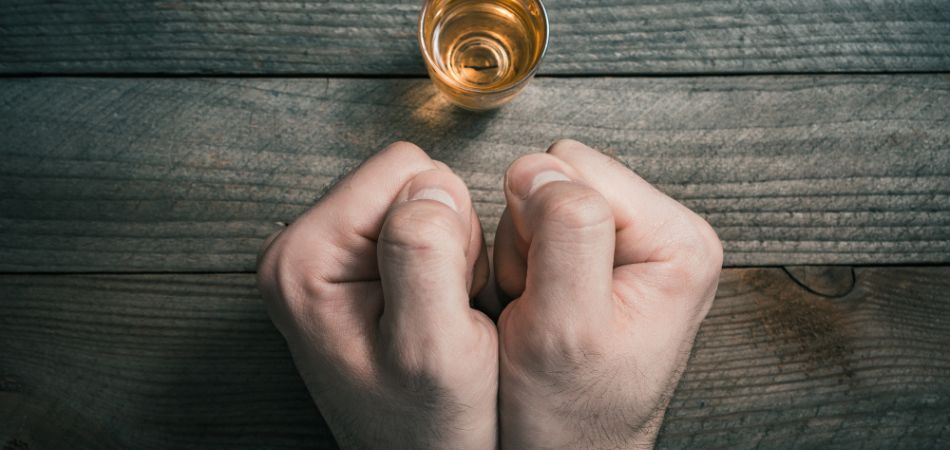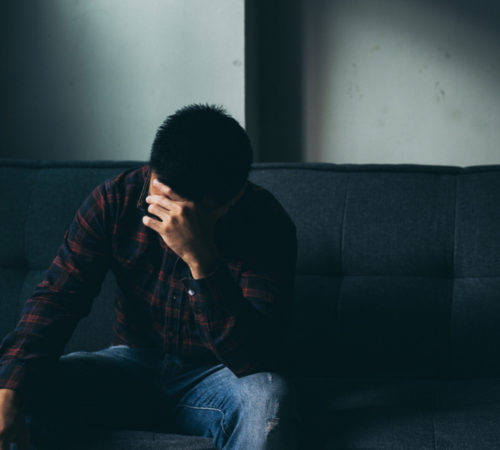
Written by:

Medically Reviewed by:
Last Updated:
June 4th, 2025
Alcohol Detox | Alcohol Withdrawal & Detox Timeline
At closing time in pubs and clubs, one of the worst jobs is squeezing out the bar towels which have soaked up all the night’s spills. That’s similar to how our bodies absorb and hold onto alcohol during addiction. Alcohol detox is your chance to wring out alcohol and all its toxins, clearing your systems and giving you a healthier mind and body. There are some risks, particularly if you attempt alcohol detox at home on your own, but Linwood House has helped countless people through the process and we are here to help you too.
What is alcohol detox?
Detox is the critical first step in overcoming alcohol addiction, focusing on the physical dependence your body has developed. It’s about purging alcohol from your system and allowing you to begin healing from its harmful effects.
Successfully completing alcohol detox will greatly improve both your physical and mental health. Most importantly, it will prepare you for the subsequent rehab treatment stages, where the psychological parts of dependency can be addressed. Once treatment is done, you will then begin aftercare and be invited to join our Alumni Programme to ensure lasting sobriety.
The importance of alcohol detox
Undergoing professional alcohol detox in a controlled environment like Linwood House is so important because it is the safest and most effective to begin recovery. As your body withdraws from alcohol, it may react with a range of symptoms. Some may be mild but others can be dangerously severe. These alcohol withdrawal symptoms can make you relapse and start drinking again and even put your health at risk.
Alcohol detox makes sure that any professional support you need is available right there when you need it. When you detox from alcohol at Linwood House, here are some of the ways we keep you safe and give you the best chance of success:
- A secure detox environment: Our inpatient alcohol detox programme is designed to give you a peaceful, secure environment, with no access to alcohol and totally free from the pressures of your everyday life.
- Constant care and guidance: Navigating alcohol detox can be intense and understandably scary but our team is available 24/7, ready to provide anything you need.
- Individual health screening and detox plan: Starting with a thorough medical assessment, we customise your alcohol detox plan to fit your specific needs, considering your health history and personal recovery objectives.
- Detox medication: We use safe, proven medications for alcohol detox to help manage withdrawal symptoms effectively, reduce cravings and ensure a smoother process.
- Integrated treatment: Alcohol detox is just the beginning so once you are stable, we offer comprehensive alcohol rehab that combines various therapies and programmes for sustainable sober living.
Home alcohol detox vs inpatient alcohol detox
Taking a break from alcohol is a great goal and if you’re not physically dependent, alcohol detox at home can be a safe and simple way to reset. Loads of people try it during things like ‘Dry January’ and they can experience huge benefits right away.
But if you are addicted to alcohol, it is a different story. If you attempt to detox from alcohol alone when addicted, you could put yourself in a potentially life-threatening situation. In those cases, the safest choice is always to get help from a professional detox centre. With expert staff on hand, proper support and possible medications for alcohol detox, you can go through withdrawal safely, knowing you’re in good hands.
Alcohol withdrawal symptoms to watch out for
Alcohol withdrawal symptoms can show up in lots of different ways and often depend on how much you’ve been drinking, for how long, and your own personal health. Some of the most common symptoms during alcohol detox include:
- Headaches
- Nausea and vomiting
- Tremors
- Profuse sweating
- Feeling anxious
- Trouble sleeping
- Feeling irritable or restless
- Seeing or hearing things that aren’t there
In some cases, people develop a serious condition known as delirium tremens (or DTs), especially if they have been drinking heavily for a long time. DTs can cause confusion, high fever, seizures and vivid hallucinations. It is a medical emergency that needs professional care to be handled safely.
Alcohol withdrawal timeline
The timeline for alcohol detox can vary depending on the individual’s specific situation. However, here is a general overview of what to expect at our alcohol detox clinic:
Day one: The first day will involve medical monitoring and medication management to help ease withdrawal symptoms. You may experience anxiety and restlessness.
Days two to three: The individual may experience intense cravings, tremors, sweats, and other physical and psychological symptoms. The medical team will continue to monitor and manage symptoms, including providing medication-assisted treatment if necessary.
Days four to five: By this point, alcohol withdrawal symptoms should begin to subside. However, it is still important to monitor closely for any lingering symptoms or complications.
Day six and beyond: By now, most people will start feeling much better. However, in some cases, the symptoms may continue to linger for a few days or even weeks.
The typical alcohol detox timeline
The alcohol detox timeline doesn’t follow a strict script and your personal detox experience will depend on your mental health, your drinking habits and how your system reacts once alcohol is gone. That said, most people tend to follow a general alcohol detox symptoms timeline, which can give you some idea of what to expect:
Alcohol detox myths busted
There is a lot of confusion out there about alcohol detox. It’s important to clear up some of the most common myths to make sure people get the help they need:
Myth: Alcohol withdrawal is just like a bad hangover
Not even close. While some symptoms overlap, alcohol withdrawal can bring on seizures, hallucinations and other severe effects that a hangover never would.
Myth: You only need detox if you’re drinking all day, every day
Alcohol dependency doesn’t always look like constant drinking. Even people who drink heavily a few nights a week can become physically dependent and need detox.
Myth: I’ve tried detox before and relapsed, so there’s no point trying again
Relapse is common and never a reason to give up. Every attempt at recovery is a step forward and what matters is getting back on track.
Myth: Alcohol detox is painful and unbearable
Alcohol withdrawal symptoms can be tough, but with proper care and medication, most people find it far more manageable than they expected.
Myth: You have to hit rock bottom before alcohol detox is worth it
You don’t have to lose everything to get help. The earlier you reach out, the easier it is to recover and start fresh.
Detox from alcohol with Linwood House today
At Linwood House, we’re here to help you take that first step toward a life free from alcohol. Our personalised alcohol detox programmes are built around your needs, your pace and your goals. Contact us today to discuss how we can support your journey to lasting recovery.
Frequently asked questions
(Click here to see works cited)
- Banbury Lodge. “Addiction Detox | Withdrawal & Detox Timelines.” Banbury Lodge, https://www.banburylodge.com/detox/. Accessed 19 April 2025.
- UK Addiction Treatment Centres. “Alcohol rehab | Alcohol addiction treatment | UKAT.” UK Addiction Treatment Centres, 5 December 2023, https://www.ukat.co.uk/rehab-treatment/alcohol/. Accessed 19 April 2025.
- Drinkaware. “Alcohol withdrawal symptoms.” Drinkaware, 2022, https://www.drinkaware.co.uk/facts/health-effects-of-alcohol/general-health-effects/alcohol-withdrawal-symptoms. Accessed 19 April 2025.
- NCBI. “Alcohol Withdrawal Syndrome – StatPearls.” NCBI, 14 February 2024, https://www.ncbi.nlm.nih.gov/books/NBK441882/. Accessed 19 April 2025.














